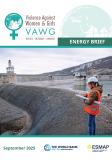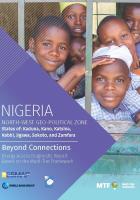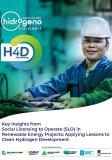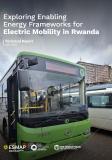Publications
EXPLORE THE DATA: Multi-Tier Framework for Energy Access
Nigeria is a low-middle-income country. The economic growth is too low to lift the bottom half of the population out of poverty, and living standards are expected to worsen. The country has one of the lowest rates of net electricity generation per capita worldwide. Electricity generation fails to satisfy demand, resulting in load shedding, blackouts, and a reliance on private generator. A substantial share of the population without electricity access is in northern Nigeria, which is generally poorer and more sparsely populated than southern states. Thus, the Multi-Tier Framework (MTF) survey in Nigeria mainly focuses on the geopolitical zone of North-West Nigeria, where two distribution companies (DISCOs) provide electric services. Nonetheless, notable power sector reforms are under way in the country, including plans for electrification. The World Bank, with support from the Energy Sector Management Assistance Program (ESMAP), has launched the Global Survey on Energy Access, using the MTF approach. The survey’s objective is to provide more nuanced data on energy access, including access to electricity and cooking solutions. The MTF approach goes beyond the traditional binary measurement of energy access for example, “having or not having” a connection to electricity, “using or not using” clean fuels in cooking to capture the multidimensional nature of energy access and the vast range of technologies and sources that can provide energy access, while accounting for the wide differences in user experience.
RELATED
READ THE REPORT: Beyond Borders: Energy Access Redefined | Executive Summary
Luzi,Lucia; Beria,Nikunj Prakash; Koo, Bryan Bonsuk; Portale,Elisa; Rysankova,Dana.
Nigeria: Beyond Connections | North-West Geo-Political Zone States of Kaduna, Kano, Katsina, Kebbi, Jigawa, Sokoto, and Zamfara (English). Washington, D.C. : World Bank Group. http://documents.worldbank.org/curated/en/099122223123513685/P1744811d86c230a21ac8612b1af78fc257




